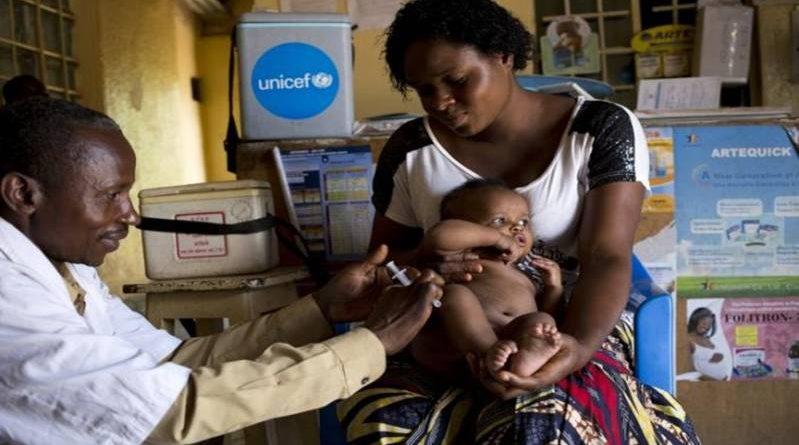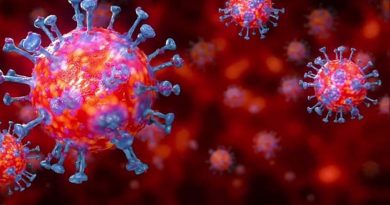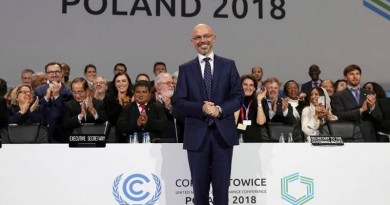Over 80 million children vaccinated with the novel oral polio vaccine type 2 (nOPV2)
More than 80 million children have been vaccinated with the novel oral polio vaccine type 2 (nOPV2) in six countries in Africa, the world’s first region to rollout of the vaccine just months after the World Health Organization (WHO) gave it Emergency Use Listing status in November 2020.
Nigeria became the first country in the world to use nOPV2 to tackle an outbreak in March 2021, vaccinating 7 million children in six states. By September, Benin, Congo, Liberia, Niger and Sierra Leone had also rolled out the vaccine. Africa was certified free of wild polio in August 2020, but outbreaks of circulating vaccine-derived polio type 2 are still being reported.
“The nOPV2 brings significant advantages in tackling polio outbreaks and Nigeria has worked closely with the global polio partners to rollout the vaccine. With swift outbreak response and effective tools and measures, our path to ending all forms of polio once and for all is clearer,” said Dr Tunji Funsho, chair of Rotary’s National PolioPlus Committee, Nigeria.
The nOPV2 is a modified form of the monovalent oral polio vaccine designed to be more genetically stable and less likely to, in under-immunized populations, revert to a form that can cause permanent paralysis in children from vaccine-derived poliovirus. Given the urgent public health need to address vaccine-derived polio globally, nOPV2 became the first vaccine to receive authorization for use under Emergency Use Listing (EUL). WHO has urged countries to rapidly implement the process for national approval for importation and deployment of the vaccine once it was approved for use.
“Africa’s trailblazing rollout of the novel polio vaccine shows a true determination to ending polio for good. The progress made by the six countries and the upcoming rollout in five additional countries targeting 30 million children by the end of 2021 promise effective and lasting protection from the threat of lifelong paralysis,” said Dr Pascal Mkanda, Polio Eradication Programme Coordinator at WHO Regional Office for Africa.
Meeting pre-deployment requirements
Over the last three years the African region has seen a growing number of circulating vaccine-derived type 2 poliovirus outbreaks, from an initial three countries (Angola, Democratic Republic of the Congo and Kenya) in 2019 to more than 20 in 2021. While there has been steady progress towards eradication of all forms of polio in the region, the growing number of outbreaks is concerning and requires a swift and robust immunization response. The nOPV2 plays an effective role in stopping these outbreaks.
To deploy nOPV2 under EUL, countries must meet a set of strict requirements. The WHO Strategic Advisory Group of Experts recommended that the vaccine be rolled out under an initial phase which ran from March to October 2021. Fourteen African countries fulfilled the rollout criteria which included obtaining regulatory approvals, surveillance enhancement activities, preparation of cold chain and logistics, targeted communication plans to address rumours and misinformation, and training of staff and frontline workers. On average it took about six to eight weeks for countries to fulfil these requirements, with Nigeria being the fastest to be fully verified for use in under four weeks.
Vaccine rollout safety
WHO in Africa has worked with countries to improve vaccine safety monitoring systems. Countries eligible for outbreak response and needing support were prioritized, with the Rapid Response Team from the WHO Regional Office for Africa assisting. The team has provided guidelines and vaccine safety monitoring systems to Angola, Congo and Liberia. National Causality Assessment Committee for Adverse Events Following Immunization have also been re-established in countries not only for nOPV2 vaccine safety, but also for assessing COVID-19 vaccines related adverse events. Country safety teams and partner organizations have been instrumental in collection and review of safety data.
Based on an independent review of the preliminary safety and genetic stability data collected and analysed by African Member States, the WHO Strategic Advisory Group of Experts in October 2021 recommended broader use of nOPV2. The move to the wider use phase will enable faster deployment of nOPV2 in the field.
The key changes during the transition to wider rollout include reducing the requirements and restrictions. For instance, in broader deployment the vaccine can be used in integrated campaigns, meaning it can be delivered with other vaccines or nonvaccine interventions such as vitamin A administration. The requirements countries need to meet to use the vaccine have now been reduced to 16 from 25. This is particularly important given that rapid outbreak response is crucial to successfully stopping the circulation of the virus.
During this wider-use phase, Ethiopia, Mauritania, Nigeria, The Gambia, Senegal and Uganda will roll out campaigns targeting a total of approximately 30 million children, increasing the number of African children with effective polio protection.




